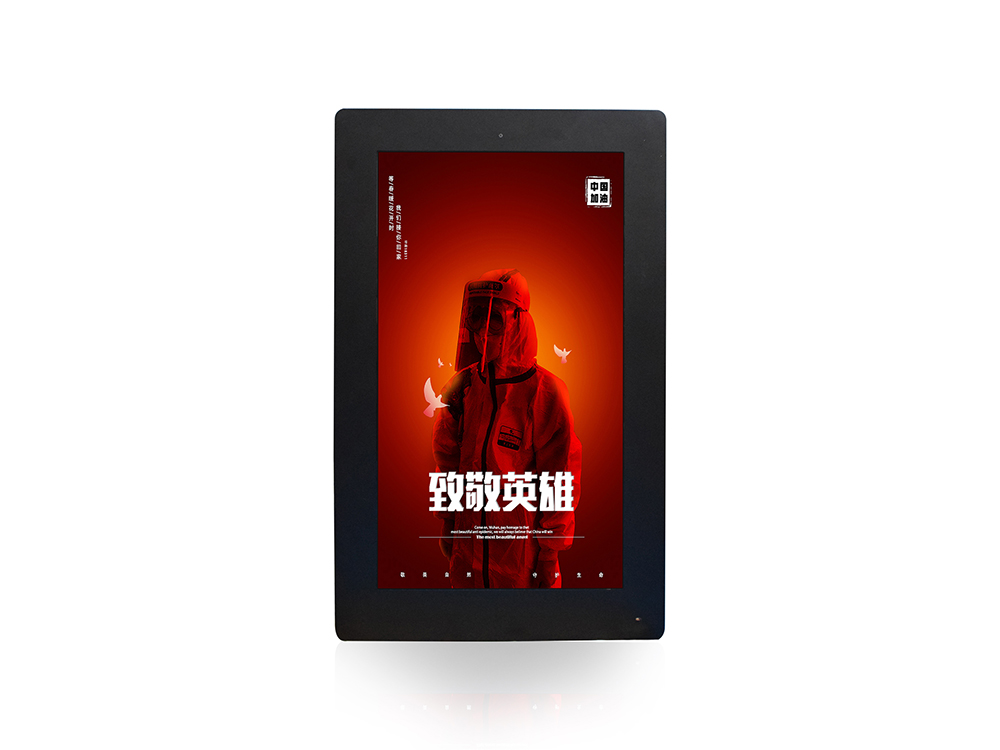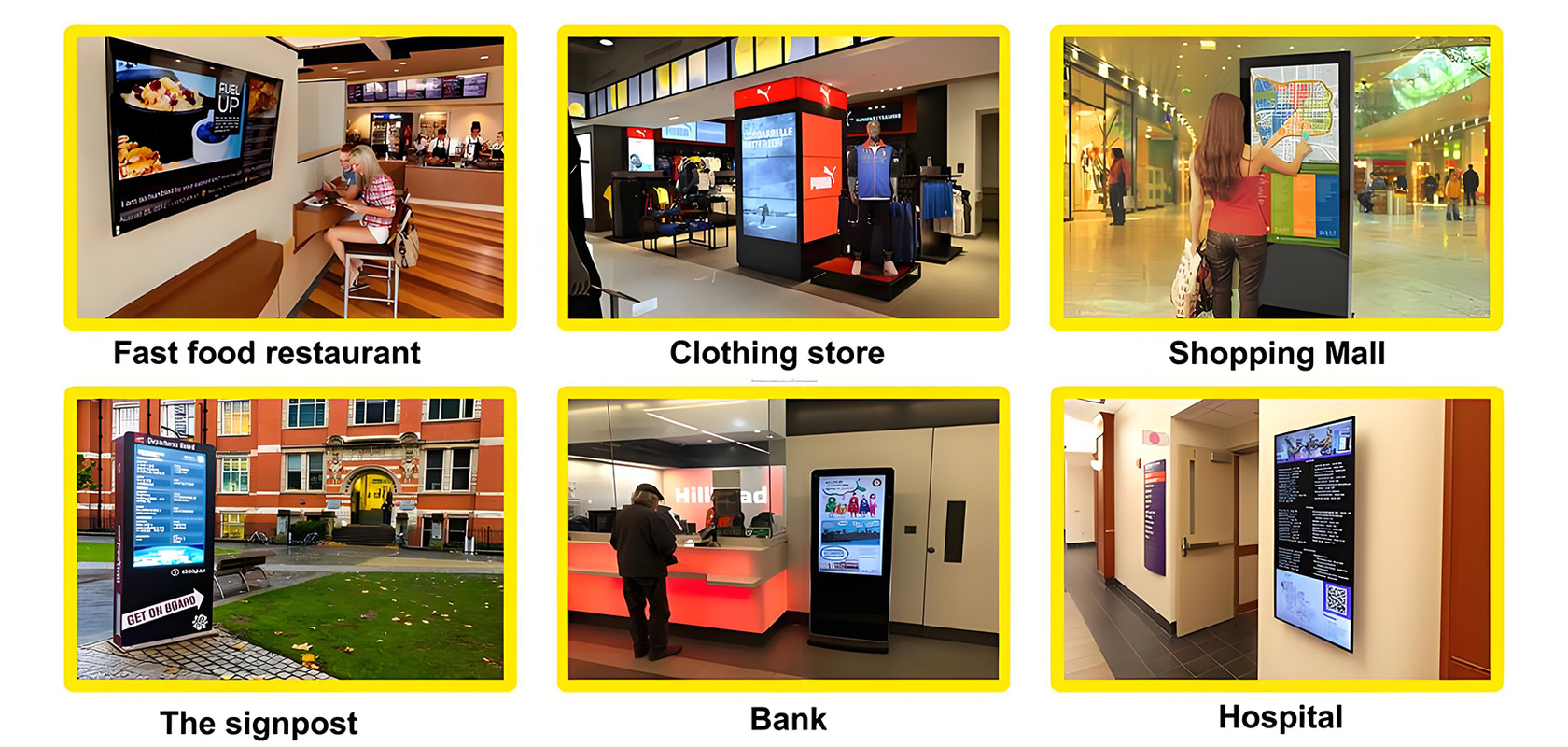
The Power of Indoor Digital Signage for Business Promotion.In the dynamic world of modern business, where competition is fierce and consumer attention spans are fleeting, finding innovative ways to capture and retain customer interest is paramount. One such powerful tool that has emerged in recent years is indoor digital signage. This technology leverages the visual impact and dynamic capabilities of digital displays to create engaging, informative, and persuasive messages that can significantly enhance business promotion efforts. This article delves into the myriad benefits and strategies of using indoor digital signage, illustrating why it has become an indispensable asset for businesses across various industries.

The Evolution of Advertising
Traditionally, indoor advertising has relied on static mediums such as posters, banners, and printed signage. While these methods have their place, they lack the versatility and immediacy of digital formats. Digital signage, on the other hand, combines the best elements of traditional advertising with the interactivity and real-time updatability of digital media. This evolution has not only transformed the way businesses communicate with their customers but has also opened up new avenues for creativity and personalization.
The Versatility of Indoor Digital Signage
Indoor digital signage can be installed in a variety of locations within a business premise, from reception areas and corridors to retail stores and waiting lounges. Its versatility lies in its ability to adapt to different environments and purposes, making it a highly flexible tool for promotion.
1. Dynamic Content
One of the most compelling advantages of indoor digital signage is its capacity for dynamic content. Unlike static signs, digital displays can showcase a range of media, including videos, animations, and live feeds. This dynamic nature not only grabs attention more effectively but also allows businesses to convey more information in a shorter period. For instance, a retail store can use a digital sign to showcase its latest products, promotions, and even customer testimonials, creating a more immersive shopping experience.
2. Real-Time Updates
The real-time updatability of digital signage is another significant strength. Businesses can instantly change their messages in response to market trends, customer feedback, or even special events. This agility is particularly useful in industries where promotions and discounts change frequently, such as retail and fast food. For example, a restaurant can quickly update its menu board to reflect daily specials or holiday offers, ensuring that customers are always aware of the latest deals.
3. Targeted Messaging
Indoor digital signage also offers the ability to deliver targeted messages to specific audiences. By using data analytics and customer segmentation, businesses can tailor their content to match the preferences and behaviors of different customer groups. For instance, a gym can display workout tips and motivational videos during peak hours to motivate its members, while showcasing class schedules and personal trainer promotions during off-peak times. This targeted approach not only enhances engagement but also drives conversions by presenting the right message at the right time.
Enhancing Customer Experience
In today's customer-centric business environment, enhancing the overall customer experience is crucial for fostering loyalty and repeat visits. Indoor digital signage plays a pivotal role in achieving this by creating a more engaging and informative atmosphere.
1. Navigation and Information
Digital signage can serve as an effective navigation tool within large facilities, such as malls, hospitals, and airports. By displaying directories, maps, and wayfinding information, digital signs help customers find their way more efficiently. This not only improves customer satisfaction but also reduces the workload on staff, allowing them to focus on other tasks.
Moreover, digital signage can provide valuable information about products, services, and events. In a museum, for example, interactive digital kiosks can offer detailed descriptions of exhibits, audio tours, and even educational videos. This enhances the visitor experience by making information accessible and engaging.
2. Entertainment and Ambiance
Beyond its functional benefits, indoor digital signage can also contribute to the overall ambiance of a space. By displaying high-quality visuals and soothing audio, digital displays can create a welcoming and enjoyable environment. This is particularly beneficial in waiting areas, where customers might spend extended periods. For instance, a dental clinic can use digital signage to display calming nature scenes or educational videos about oral hygiene, making the waiting experience more pleasant.
Boosting Sales and Engagement
Indoor digital signage is not just about enhancing the customer experience; it's also a potent tool for boosting sales and increasing engagement. By leveraging the power of visual storytelling and persuasive design, businesses can effectively promote their products and services, driving conversions and revenue growth.
1. Cross-Promotion and Upselling
Digital signage can be used to cross-promote related products or services, encouraging customers to make additional purchases. For example, a coffee shop can use a digital menu board to showcase its complementary offerings, such as pastries, sandwiches, and smoothies. By displaying visually appealing images and enticing descriptions, businesses can effectively stimulate customers' appetites and increase their spend.
Upselling is another strategy that can be effectively implemented through digital signage. By highlighting premium products or services and emphasizing their unique benefits, businesses can encourage customers to upgrade their choices. In a spa, for instance, digital signage can showcase luxury treatments and packages, complete with testimonials and before-and-after photos, to entice customers to opt for more expensive services.
2. Interactive Elements
Interactive digital signage takes engagement to the next level by allowing customers to actively participate in the content. Touchscreens, motion sensors, and QR codes can be used to create immersive experiences that captivate customers' attention and encourage them to engage with the brand. For example, a clothing store can use an interactive digital mirror that allows customers to virtually try on different outfits, enhancing the shopping experience and potentially increasing sales.
Measuring Effectiveness and ROI
Unlike traditional advertising methods, indoor digital signage offers businesses the ability to measure the effectiveness of their campaigns and calculate a return on investment (ROI). By integrating analytics tools, businesses can track key metrics such as viewership, engagement rates, and conversion rates.
1. Audience Analytics
Digital signage software often includes audience analytics features that can provide insights into viewer behavior. This data can reveal patterns, such as peak viewing times, most popular content, and customer dwell times. By analyzing these insights, businesses can optimize their content strategies, ensuring that the right messages are delivered at the most effective times.
2. Conversion Tracking
Measuring conversions is crucial for assessing the impact of promotional efforts. By integrating digital signage with point-of-sale systems, businesses can track sales and other conversions that result from digital signage campaigns. This data allows businesses to calculate the ROI of their digital signage investments, enabling them to make informed decisions about future spending.
Indoor digital signage has emerged as a powerful tool for business promotion, offering a versatile, dynamic, and measurable way to engage customers and drive sales. Its ability to deliver targeted messages, enhance customer experience, and provide real-time updates makes it an indispensable asset for businesses across various industries. As technology continues to evolve, the capabilities of indoor digital signage will only expand, further solidifying its role in modern marketing strategies. By embracing this technology, businesses can create more engaging, informative, and persuasive promotional campaigns, ultimately driving growth and success in today's competitive market.
Current article link: https://www.lcdkiosk.com/news/756.html

Tel
